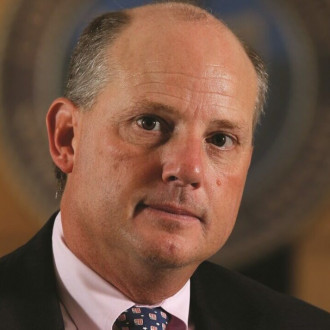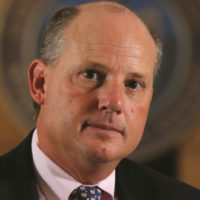Leo E. Strine, Jr.
Of Counsel
Wachtell, Lipton, Rosen & Katz

Leo E. Strine, Jr.
Of Counsel
Wachtell, Lipton, Rosen & Katz
Leo E. Strine, Jr., is Of Counsel in the Corporate Department at Wachtell, Lipton, Rosen & Katz. Prior to joining the firm, he was the Chief Justice of the Delaware Supreme Court from early 2014 through late 2019. Before becoming the Chief Justice, he had served on the Delaware Court of Chancery as Chancellor since June 22, 2011, and as a Vice Chancellor since November 9, 1998.
In his judicial positions, Mr. Strine wrote hundreds of opinions in the areas of corporate law, contract law, trusts and estates, criminal law, administrative law, and constitutional law. Notably, he authored the lead decision in the Delaware Supreme Court case holding that Delaware’s death penalty statute was unconstitutional because it did not require the key findings necessary to impose a death sentence to be made by a unanimous jury.
Mr. Strine holds long-standing teaching positions at Harvard and University of Pennsylvania, where he has and continues to teach diverse classes in corporate law addressing, among other topics, mergers and acquisitions, the role of independent directors, valuation, and corporate law theories. He is a member of the American Law Institute, and currently serves as an advisor on the project to create a restatement of corporate law.
Mr. Strine also serves as the Michael L. Wachter Distinguished Fellow in Law and Policy at the University of Pennsylvania Carey Law School, the Ira M. Millstein Distinguished Senior Fellow at the Ira M. Millstein Center for Global Markets and Corporate Ownership at Columbia Law School and a Senior Fellow of the Harvard Program on Corporate Governance. From 2006 to 2019, Mr. Strine served as the special judicial consultant to the ABA’s Committee on Corporate Laws. He also was the special judicial consultant to the ABA’s Committee on Mergers & Acquisitions from 2014 to 2019.

A person listed as a contributor has spoken or otherwise participated in Regulatory Transparency Project events, publications, or multimedia presentations. A person's appearance on the website does not imply an endorsement or relationship between the person and the Regulatory Transparency Project. The Regulatory Transparency Project takes no position on particular legal or public policy issues. All expressions of opinion by a contributor are those of the contributor.
Contributions
Corporate Social Responsibility, Investment Strategy, and Liability Risks
A distinguished panel joins us to discuss a new paper that examines the legal implications of the rise of “ESG” investing.
Watch this videoDeep Dive Episode 200 – Corporate Social Responsibility, Investment Strategy, and Liability Risks
A distinguished panel joins us to discuss a new paper that examines the legal implications of the rise of “ESG” investing.
Listen to this podcast

